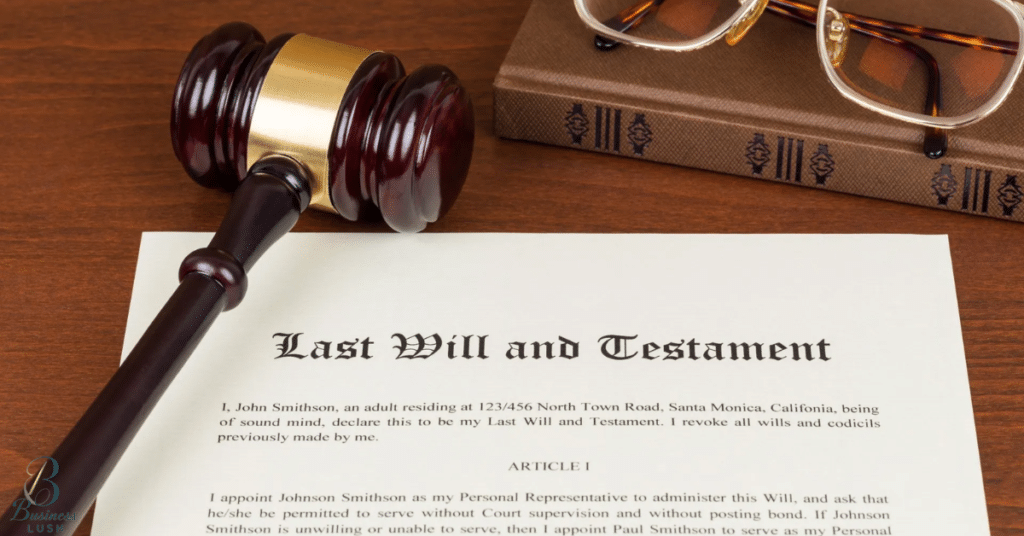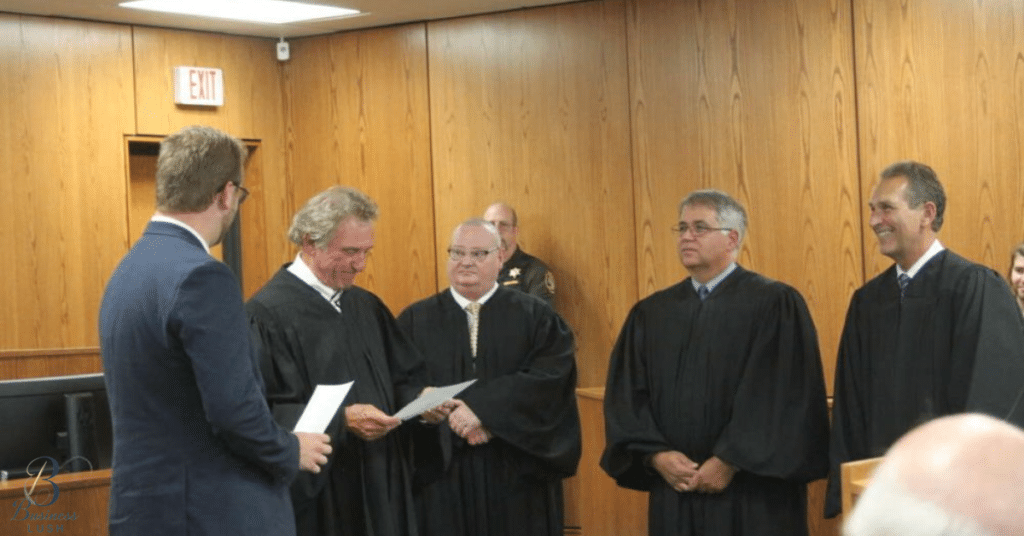The Probate Court oversees the legal process of managing the estate of a deceased person ensuring debts are paid and assets are distributed as per the will or state laws. It validates the authenticity of the will appoints an executor and resolves disputes over inheritance.
In probate assets like real estate vehicles and personal belongings are evaluated debts settled and remaining assets distributed to beneficiaries. Certain assets like retirement accounts with designated beneficiaries may bypass probate.Negligence to comply with court orders or fraudulent actions during probate proceedings can lead to contempt charges potentially resulting in fines or imprisonment as determined by a probate judge.
The probate process involves filing a petition with the court appointing an executor notifying creditors and beneficiaries paying debts and taxes and distributing assets. It can be complex and time consuming often requiring legal assistance to navigate effectively.
What Is Probate Court?
Probate Court is a specialized judicial body responsible for overseeing the legal process of managing the estate of a deceased individual. It ensures that the deceased debts are paid and their assets are distributed according to their will or state laws. The court validates the authenticity of the will appoints an executor to manage the estate and resolves any disputes that may arise during the probate process.
Assets such as real estate vehicles and personal belongings are evaluated in Probate Court and outstanding debts are settled using the deceased assets. Once debts are paid remaining assets are distributed to the beneficiaries named in the will. The Probate Court also handles any challenges to the wills validity and ensures that the estate is distributed fairly among the rightful heirs.
Understanding Probate Court
Probate Court is the legal entity tasked with managing the estate of a deceased person. It oversees the process of settling debts evaluating assets like real estate and personal belongings and distributing remaining assets to beneficiaries as outlined in the will or state laws.
This court validates the authenticity of the will appoints an executor to carry out its provisions and resolves disputes that may arise during the probate process. It ensures that the deceased wishes are respected and that assets are distributed fairly among heirs.
What Goes Through Probate?
Various assets and matters are addressed to ensure the orderly distribution of an individual estate.Assets subject to probate include real estate vehicles personal belongings and financial accounts solely owned by the deceased.

The probate process involves evaluating these assets settling outstanding debts and distributing remaining assets to beneficiaries as directed by the will or state laws.Probate courts validate wills appoint executors and resolve inheritance disputes. Probate encompasses the legal procedures necessary to administer a deceased parsons estate and ensure that their final wishes are carried out appropriately.
The Probate Court Process
The probate court process involves several steps to administer a deceased individuals estate. A petition is filed with the court along with the original will and a death certificate. The court then appoints an executor or personal representative to manage the estate.
Creditors are notified debts are settled and assets are inventoried. Remaining assets are distributed to beneficiaries according to the will or state laws and the court oversees the executors activities until the process is completed.
Probate Court Without a Will
When an individual passes away without a will the probate court process still occurs to manage and distribute their estate. This process known as intestate succession involves the court determining how to distribute the deceased parsons assets among their heirs according to state laws. Close relatives such as spouses children parents and siblings inherit a portion of the estate based on predefined rules of succession.
In the absence of a will the probate court appoints an administrator to oversee the estates settlement instead of an executor. The administrators role is similar to that of an executor including notifying creditors paying debts and distributing assets to heirs. The probate court oversees the entire process to ensure that the estate is distributed fairly and in accordance with applicable laws.
The Costs of Probate Court
The costs associated with probate court proceedings can vary depending on the complexity of the estate and local regulations. Common expenses may include court filing fees costs for publishing death notices and fees for legal representation.
If the estate is large or complicated the assistance of accountants or appraisers may be necessary incurring further costs. These expenses can accumulate over the duration of the probate process which typically ranges from several months to a few years potentially impacting the overall value of the estate that beneficiaries receive.
How to Avoid Probate Court
In probate court individuals can establish living trusts designate beneficiaries for assets like retirement accounts and utilize joint ownership or transfer on death designations for certain assets. Making lifetime gifts and carefully planning estate distribution can also help avoid probate.

Establishing a Living Trust
Establishing a living trust involves transferring ownership of assets into the trusts name allowing them to bypass probate court upon the grantor death. This legal arrangement enables efficient asset management and distribution to beneficiaries according to the trusts terms avoiding the delays and expenses associated with probate.
Related Content: Viktor Hovland Daughter? Revealed! [2023]
Designating Beneficiaries for Assets
Designating beneficiaries for assets such as retirement accounts life insurance policies and investment accounts allows those assets to pass directly to the designated individuals upon the owner death avoiding probate court. The assets can be distributed efficiently without the need for court involvement saving time and potential costs for the estate.
Joint Ownership of Assets
Joint ownership of assets involves holding property or accounts with another individual typically with rights of survivorship
Rights of Survivorship
Jointly owned assets often come with the right of survivorship meaning that when one owner passes away the remaining owner automatically inherit the deceased owners share without the need for probate.
Types of Joint Ownership
Common forms of joint ownership include joint tenancy with rights of survivorship and tenancy by the entirety for married couples. These arrangements facilitate seamless transfer of assets upon death.
Avoidance of Probate
Assets held in joint ownership bypass probate court proceedings as ownership automatically transfers to the surviving joint owner upon death.

Considerations
While joint ownership can simplify asset transfer it is essential to consider potential drawbacks such as loss of control over the asset liability for co owners debts and conflicts with estate planning goals.
Documentation
Proper documentation such as a deed for real estate or account titling for financial accounts is necessary to establish joint ownership and clarify the rights and responsibilities of each owner.
Making Lifetime Gifts
Making lifetime gifts involves transferring assets to intended beneficiaries while the donor is still alive reducing the size of the estate subject to probate upon death. By gifting assets during onus lifetime individuals can minimize estate taxes and streamline the distribution of assets outside of probate court
Utilizing Transfer on Death Designations
Utilizing Transfer on Death designations allows assets such as securities vehicles and real estate to pass directly to designated beneficiaries upon the owner death bypassing probate.
What Happens at a Probate Court Hearing?
During a probate court hearing the judge outlines the responsibilities of the executor including contacting beneficiaries and creditors appraising assets and paying outstanding debts and taxes The judge ensures that all necessary tasks have been completed before closing the estate so that the transfer of assets can begin.
At a second court hearing typically held to finalize the estate the judge reviews the executors actions to ensure compliance with court orders and legal requirements. Once satisfied the judge approves the final distribution of assets to beneficiaries officially closing the probate process and concluding the courts involvement in administering the estate.
Do You Have to Go to Probate Court When Someone Dies?
When someone dies depends on various factors such as the size of the estate how assets are titled and whether there is a valid will. In some cases if the deceased had minimal assets or if those assets were held jointly with right of survivorship or had designated beneficiaries probate court may not be necessary. If the deceased estate includes significant assets solely in their name or if there are disputes among beneficiaries probate court proceedings may be required to settle the estate and distribute assets according to the law.
How Do You Avoid Probate Court?
- Transfer assets into a trust enabling them to pass directly to beneficiaries without probate.
- Designate beneficiaries for assets like retirement accounts and life insurance policies bypassing probate.
- Hold assets jointly with rights of survivorship to ensure automatic transfer to the surviving owner upon death.
- Gift assets during your lifetime to reduce the size of your estate subject to probate.
- Designate beneficiaries for assets like securities and vehicles allowing them to pass directly to beneficiaries upon your death.
How Long Does Probate Take?
The duration of probate can vary widely depending on factors such as the complexity of the estate the presence of disputes and local laws. In straightforward cases with no complications probate may be completed within a few months to a year. If the estate is complex or if disputes arise among beneficiaries the probate process could extend for several years particularly if litigation is involved.
Certain factors can contribute to delays in probate such as locating and valuing assets resolving creditor claims and addressing challenges to the wills validity. Court scheduling administrative tasks and the efficiency of the executor or personal representative can impact the timeline for probate proceedings.
How Do You File an Objection in Probate Court?
To file an objection in probate court you typically need to submit a formal written document outlining your objections and the grounds for contesting the matter. This document, often referred to as a petition or objection must be filed with the probate court handling the estate along with any required supporting documentation or evidence.
The probate court will schedule a hearing to review the matter. During the hearing both parties involved in the dispute will have the opportunity to present their arguments and evidence before the judge who will then make a ruling based on the merits of the case and applicable laws.
Frequently Asked Questions
What Happens at a Probate Court Hearing?
At a probate court hearing the judge reviews the executors actions ensures compliance with court orders and approves the final distribution of assets to beneficiaries.
Do You Have to Go to Probate Court When Someone Dies?
You have to go to probate court when someone dies depending on the complexity of the estate and how assets are titled. Sometimes it is necessary while in other cases assets may transfer outside of probate.
How Do You Avoid Probate Court?
You can avoid probate court by establishing a living trust, designating beneficiaries for assets, holding assets jointly making lifetime gifts and utilizing transfer on death designations.
How Long Does Probate Take?
The duration of probate varies widely but typically ranges from several months to a few years depending on factors such as the complexity of the estate and any disputes that arise.
How Do You File an Objection in Probate Court?
You need to submit a formal written document outlining your objections and grounds for contesting, along with any required supporting evidence to the probate court handling the estate.
Conclusion
A probate judge has the authority to impose penalties for contempt of court including fines and imprisonment it typically arises from failure to comply with court orders or fraudulent actions during probate proceedings. Imprisonment is not a common outcome and is usually reserved for severe violations.
Probate judges aim to ensure the fair and orderly administration of estates, prioritizing compliance with legal requirements and protecting the interests of beneficiaries. Thus while there is the possibility of jail time it is more common for probate courts to focus on resolving disputes and administering estates efficiently.

Meet Brook, our business blog guru. They turn business jargon into easy-to-read stories that captivate and inform. Dive into our blog and let Brook guide you through the corporate world with clarity and style.







